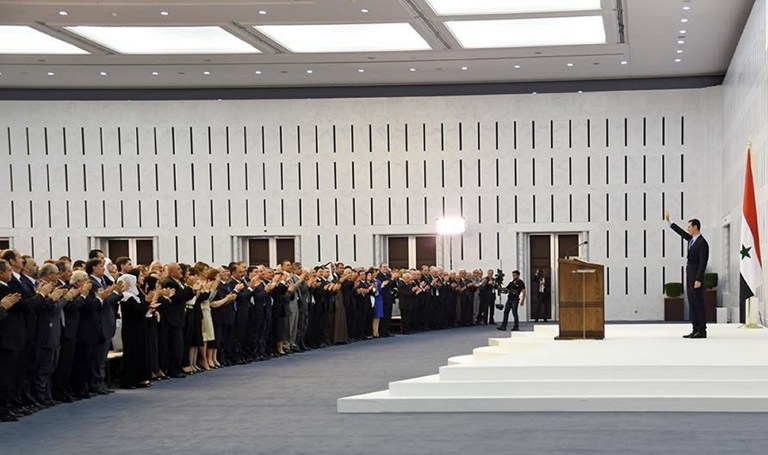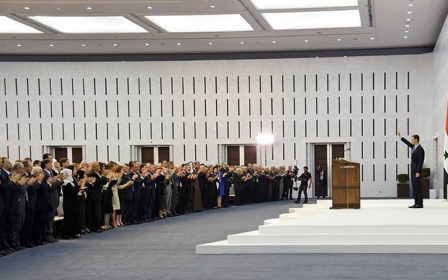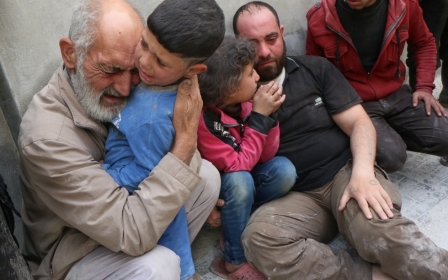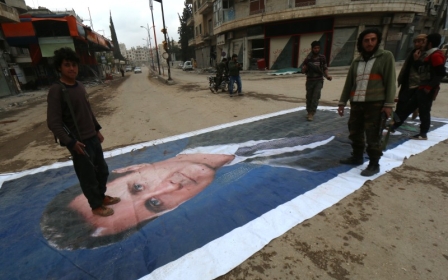Syria's intelligence chief under arrest after plotting coup, says report

Syria’s intelligence chief has been placed under house arrest after the government suspected he was plotting a coup, according to a report in Monday’s Telegraph.
Through intermediaries, Lt Gen Ali Mamlouk, the head of Syria’s National Security Bureau, was allegedly communicating with Turkish intelligence as well as Rifaat al-Assad, the uncle of President Bashar al-Assad, who was accused of attempting a coup in Syria in the 1980s, senior Syrian government sources told the Telegraph. Rifaat al-Assad declined to comment for the Telegraph's story.
Mamlouk, according to the report, began to make contact when Syrian troops lost control of Jisr al-Shughur and Idlib city in recent weeks and was motivated by concerns that Iran, one of Syria’s main allies, has more power than Assad’s inner-circle.
"Most of the advisers at the presidential palace are now Iranian," a source close to Assad told the Telegraph. "Mamlouk hated that Syria was giving her sovereignty up to Iran. He thought there needed to be a change.”
The Telegraph’s report, which relied in part on anonymous sources, was unverifiable and prompted several social media users, including Sunday Times journalist Hala Jaber, to raise questions about its veracity.
Josh Landis, director of the Centre for Middle East Studies at the University of Oklahoma and editor of Syria Comment, raised his own doubts about the story on his blog and later tweeted that Mamlouk had been working all week.
Syrian news site Souriyati also reported on 6 May that Assad had issued a presidential decree sidelining Mamlouk, appointing Tawfiq Haider in his place as head of the Office of National Security.
Souriyati's report followed others that indicated that Mamlouk was fighting for his life in a Damascus hospital under mysterious circumstances.
Kuwait’s al-Siyasah newspaper suggested that he had been poisoned with cyanide while al-Aan satellite TV reported that he was receiving treatment for leukaemia.
Al-Aan, however, also indicated that he was under house arrest after the Syrian government learned of a phone call between him and Turkish intelligence officials. The calls were made shortly before the death of Syria’s political intelligence chief Rustom Ghazali on 24 April, according to al-Aan.
Ghazaleh’s death came just weeks after Assad fired him and General Rafiq Shehadeh, head of military intelligence, after they quarrelled and Shehadeh and his associates apparently beat Ghazaleh up, according to a report in Lebanon’s Daily Star.
Ghazaleh had been seeking greater involvement in the battle against rebels in the southern province of Daraa, where he was born, AFP reported.
But Shehadeh "was categorically opposed to him taking part in the battle" in the area by regime forces backed by Lebanon's Shiite Hezbollah movement, a source told AFP.
At the time of his death Ghazaleh, 61, had been clinically dead in the hospital for several weeks following a severe head injury after the fight, Syrian Observatory for Human Rights director Rami Abdul Rahman told the Associated Press.
Ghazali was the third of four Syrian intelligence officials suspected of being involved in the 2005 assassination of former Lebanese Prime Minister Rafiq Hariri to die under mysterious circumstances. Mamlouk is the only living of the four.
In October 2005, after giving an unprecedented radio interview about Hariri’s assassination and denying his involvement, Ghazi Kanaan, Syria’s interior minister from 2004 to 2005 and head of Syria’s security network in Lebanon, reportedly shot himself in the head in his Damascus office.
In October 2013, news stories emerged that General Jameh Jameh, 59, a Syrian colonel in charge of the Syrian intelligence branch in Beirut at the time of the assassination, was shot dead by Syrian rebel fighters near his home in Deir Ezzor.
New MEE newsletter: Jerusalem Dispatch
Sign up to get the latest insights and analysis on Israel-Palestine, alongside Turkey Unpacked and other MEE newsletters
Middle East Eye delivers independent and unrivalled coverage and analysis of the Middle East, North Africa and beyond. To learn more about republishing this content and the associated fees, please fill out this form. More about MEE can be found here.




